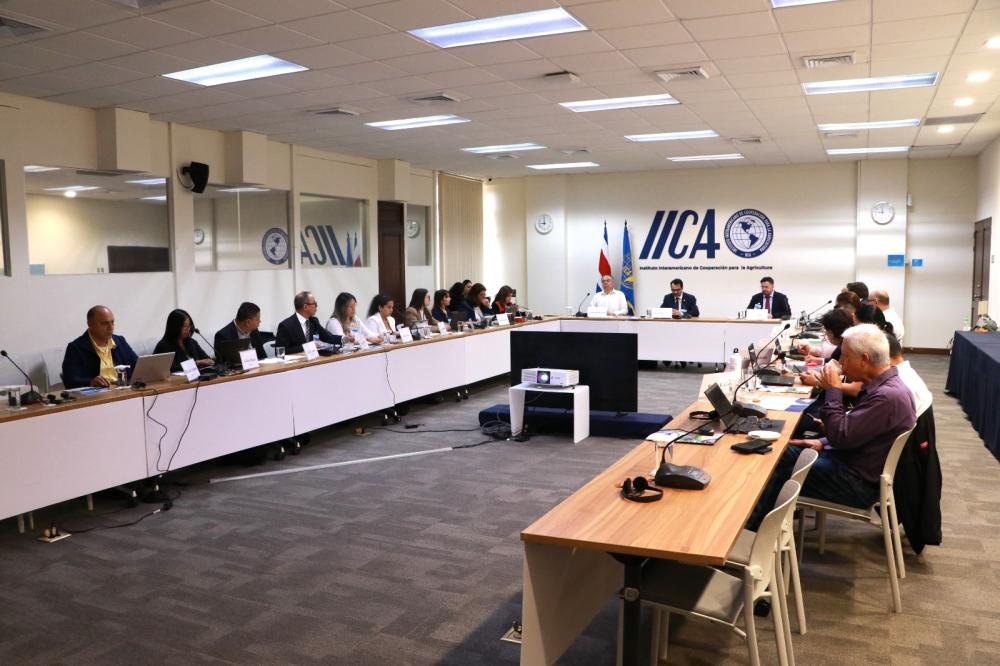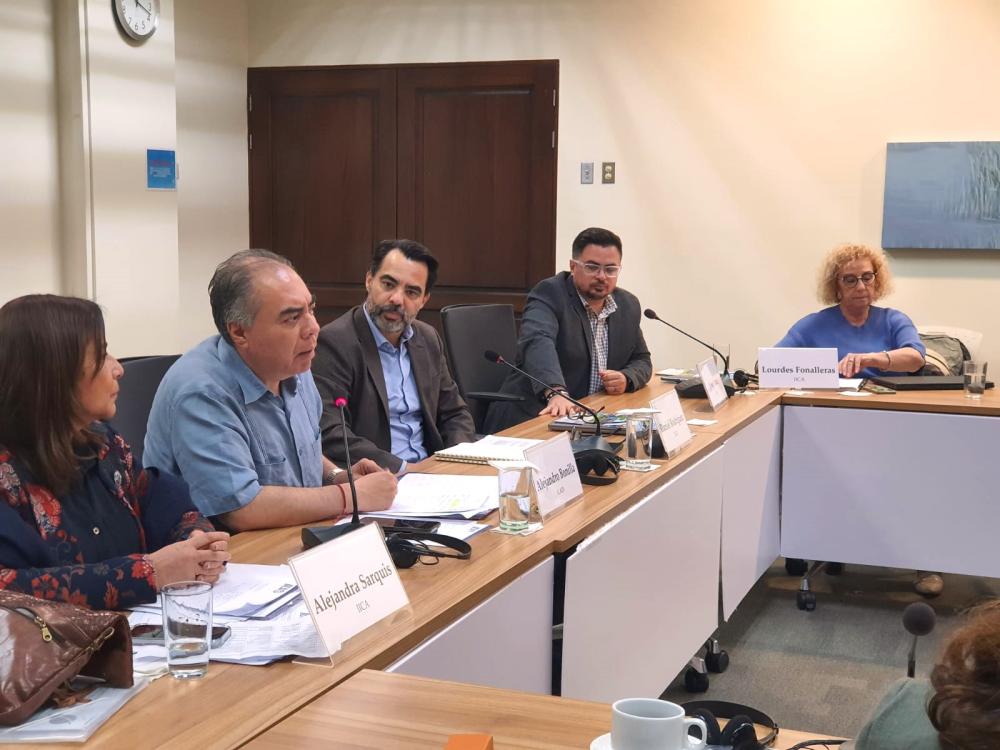During the event, held at IICA’s headquarters, more than 20 representatives from official sanitary, phytosanitary, and food safety services participated in discussions aimed at strengthening countries’ capacity to understand and implement equivalence agreements on sanitary and phytosanitary measures, thus facilitating global and regional trade in agri-food products.

San José, Costa Rica, 11 November 2024 (IICA)- Strengthening the negotiation capacities of Latin American countries by implementing equivalence agreements on sanitary and phytosanitary measures was the primary objective of the “Regional Workshop on Regulatory Convergence as a Tool for Facilitating Intra-regional Trade: Progress and Challenges in the Implementation of Equivalence Agreements on Sanitary and Phytosanitary Measures,” organized by the Latin American Integration Association (ALADI) and the Inter-American Institute for Cooperation on Agriculture (IICA).
During the event, held at IICA’s headquarters, more than 20 representatives from official sanitary, phytosanitary, and food safety services participated in discussions aimed at strengthening countries’ capacity to understand and implement equivalence agreements on sanitary and phytosanitary measures, thereby facilitating global and regional trade in agri-food products.
The main goal of the workshop was to promote a solid support structure that enables the facilitation of intra-regional trade, fostering a more competitive environment for the region’s agricultural products. Training was provided on the importance of regulatory convergence, the WTO’s international regulations on this matter, and the guidelines of the Codex Alimentarius, the World Organisation for Animal Health (WOAH), and the International Plant Protection Convention (IPPC) for the formulation of Equivalence Agreements.
The workshop sought to facilitate the exchange of experiences and lessons learned among countries, analyze challenges and opportunities for improving processes, strengthen international cooperation, and facilitate global and regional trade, with the aim of reducing regulatory diversity and promoting convergence. Additionally, it worked to complement the information gathered in a survey conducted in June of this year to assess the current status, interest, and limitations regarding the formulation of equivalence agreements in the agri-food sector.
Key speakers and facilitators of the workshop included Alejandro Bonilla, head of the Department of Agreements and Negotiations at ALADI; Daniel Rodríguez, manager of the International Trade and Regional Integration Program at IICA; and José Urdaz, manager of the Agricultural Health, Safety and Agrifood Quality Program at IICA.
Bonilla emphasized the need to promote convergence of sanitary and phytosanitary standards to facilitate intra-regional trade and improve living conditions in the region. He mentioned that ALADI has been working on activities to boost trade instruments, highlighting that over half of the association’s agreements are related to the movement of goods.
“Although tariffs are already regulated, we now face challenges with technical standards and sanitary measures, which can sometimes limit trade, even though that is not their primary objective,” added Mr. Bonilla.
Daniel Rodríguez highlighted that regulatory convergence is essential for facilitating intra-regional trade, reducing costs, and avoiding delays. He mentioned that efforts have been made to strengthen capacities in trade policy and promotion, which is crucial for improving participation in international markets.
He emphasized the need for a collaborative approach among countries and regions to establish clear and uniform rules that contribute to food security, efficiency, and competitiveness.
“Advancing towards regulatory convergence will bring benefits for producers, exporters, importers, and consumers, as long as we work together and collaboratively,” he concluded.
José Urdaz, for his part, emphasized IICA’s commitment to supporting countries’ efforts to achieve agricultural development and rural well-being, with a focus on agricultural health and food safety. He stated that this workshop aims to review the concepts related to equivalence agreements and the current state of regulatory convergence, as well as determine the next steps to strengthen this process.
He stressed the importance of working cooperatively, exchanging views between specialists and participants to maintain appropriate standards in agricultural health and food safety. He concluded that the exchange of agricultural goods, while maintaining high standards, is crucial to boosting the agro-exporting economies of the region.
During the workshop, the main guidelines for creating a Practical Guide were presented. This guide, to be developed by IICA, aims to help strengthen capacities and provide elements that assist the negotiation, design, and implementation processes of Equivalence Agreements on sanitary and phytosanitary measures for the technicians or teams responsible for the negotiations or updates of measures that facilitate trade. This process will include dialogue with the countries to define content and best practices, with the goal of disseminating the guide in the upcoming year.

Participants highlighted the importance of such training and experience-sharing opportunities, expressing the need to strengthen communication among the various actors involved in the areas of health and food safety.
The importance of considering technical, operational, and financial feasibility for negotiating these Agreements was emphasized, along with the necessity of forming public-private and academic alliances to achieve better results.
Finally, attendees stressed the importance of having relevant information to link technical and scientific work with intra-regional trade conditions. They recognized the usefulness of the commercial intelligence tools produced by ALADI.
The workshop concluded with a commitment to promote concrete measures to advance regulatory convergence and improve exchange conditions in Latin American agri-food markets.
It was proposed to share existing tools and training resources, such as online courses available on IICA and ALADI platforms. Efforts will be made to define which specific tools may be of interest to participants, opening a space for their training.
The use of IICA’s Public Policy Observatory for Agrifood Systems (OPSAa) was suggested as a platform for the continuous exchange of information and best practices, also functioning as a repository of relevant documents and a discussion forum.
These next steps are aimed at consolidating cooperation among participating countries and creating a solid support structure to facilitate the implementation of equivalence agreements in the region, promoting and strengthening intra-regional trade.
More information:
Institutional Communication Division.
comunicacion.institucional@iica.int











